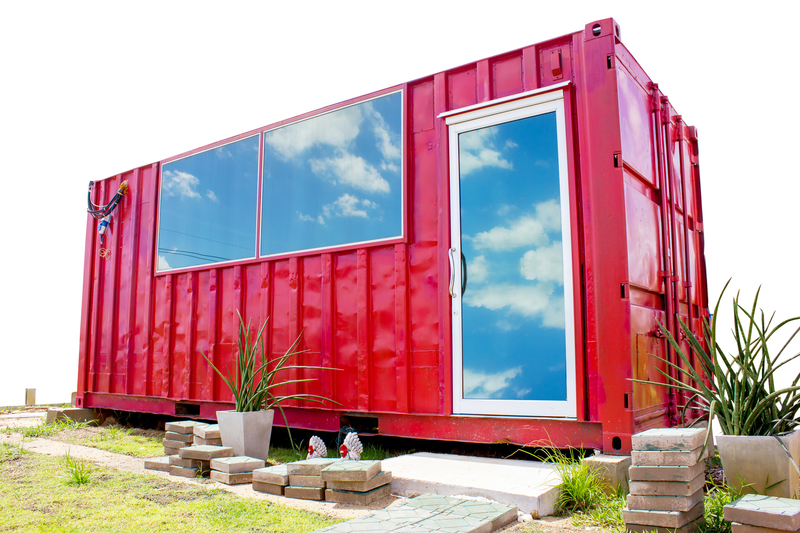Sustainable Practices for Waste Control in Your Home
As environmental concerns are growing, adopting sustainable practices for waste control in your home is increasingly important. By making a few manageable changes to your daily routines, you can reduce your household's environmental footprint while creating a healthier living space for you and your family. This comprehensive guide will walk you through various eco-friendly tips, offering innovative solutions and actionable advice to manage household waste responsibly.
Understanding Waste Management and Its Impact
Before diving into the practical aspects of home waste control, it's crucial to understand the concept of sustainable waste management. Waste control at home involves the processes of reducing, reusing, recycling, and disposing of waste in ways that minimize environmental damage and conserve resources.
- Reduces landfill buildup: Thoughtful management limits the amount of trash sent to landfills, lessening greenhouse gas emissions.
- Conserves natural resources: Recycling and reusing materials cut down on virgin resource extraction.
- Supports public health: Proper discard and handling reduce pollution and health hazards.
Implementing sustainable home waste reduction strategies not only supports global environmental goals but can also save you money and improve your well-being.

Practical Steps to Achieve Sustainable Home Waste Control
1. Waste Audit: The First Step to Sustainability
Begin your journey toward sustainable waste control in your home with a waste audit. This process helps identify the types and volumes of waste your household generates.
- Collect your household waste for a week
- Sort into categories: recyclables, compostable, landfill, hazardous
- Analyze which items appear most often
This information will guide you in making targeted reductions and improvements.
2. Reduce: Minimizing Waste at the Source
One of the most effective sustainable waste management techniques for homes is simply to generate less waste in the first place. Consider these tips:
- Buy in bulk to reduce packaging waste
- Choose products with minimal or recyclable packaging
- Prioritize quality over quantity to avoid replacing items prematurely
- Plan meals to minimize food waste
3. Reuse: Extending Product Life Cycles
When you can't avoid waste, seek opportunities to reuse items instead of tossing them away. Some creative ways to foster reusability in your home include:
- Repurpose glass jars for storage
- Use old t-shirts as cleaning rags
- Donate gently used goods to charity
- Repair household items instead of discarding
Reusing items saves money and limits the demand for new materials.
4. Recycle Correctly
Recycling is a cornerstone of sustainable home waste control, but it must be done properly to be effective:
- Clean and sort recyclables as required by your municipality
- Familiarize yourself with local recycling guidelines
- Consider electronic waste (e-waste) recycling for old devices
Incorrect recycling can contaminate batches, sending them to the landfill instead of their intended destination.
5. Compost: Transforming Kitchen and Yard Waste
Composting is a natural method of organic waste control at home. By turning your kitchen scraps and yard waste into nutrient-rich soil, you help close the waste loop.
- Set up a compost bin or pile in your backyard
- Add fruit/vegetable scraps, coffee grounds, eggshells, and yard clippings
- Avoid fats, meats, and dairy which can attract pests
- Turn regularly to aerate and accelerate decomposition
Composting reduces the volume of waste sent to landfills and provides free fertilizer for your garden.
Advanced Sustainable Solutions for Home Waste
1. Embrace a Circular Economy Mindset
A truly sustainable waste control approach in your home goes beyond basic recycling practice. Adopt the circular economy mindset by:
- Purchasing durable, modular products designed for repair and longevity
- Participating in product take-back programs or trade-ins
- Supporting companies with circular initiatives and zero-waste policies
2. Replace Single-Use Items With Sustainable Alternatives
Many household products contribute to excess waste due to their disposable nature. Swap these with sustainable alternatives:
- Bamboo toothbrushes instead of plastic
- Reusable shopping bags, water bottles, and coffee cups
- Cloth napkins and towels in place of paper ones
- Silicone food storage bags and beeswax wraps
3. Safe Disposal of Hazardous Waste
Items like batteries, electronics, paint, cleaners, and certain medications require special handling. Proper disposal ensures these materials do not contaminate water sources or soil.
- Check with your city for hazardous waste drop-off events
- Never pour hazardous chemicals down the drain
- Research e-waste recycling centers in your area
Reducing Food Waste: A Major Sustainability Challenge
Reducing food waste is critical for responsible home waste management. The UN estimates that roughly one-third of all food produced globally never gets eaten. Implement these strategies:
1. Plan and Store Wisely
- Make a shopping list and stick to it
- Store perishables properly to extend shelf life
- Adopt a first-in, first-out rotation system in your pantry and fridge
- Freeze leftovers for later consumption
2. Get Creative with Leftovers
Transform surplus ingredients into new recipes. Smoothies, soups, quiches, and stir-fries are terrific for using up odds and ends.
3. Monitor Portions and Serve Smarter
- Dish out smaller servings--seconds are always an option!
- Be realistic about how much you can eat or store
Creating an Eco-Friendly Household Routine
To fully embrace sustainable waste control at home, consistency is key. Build sustainable habits with these tips:
- Keep reusable shopping bags in convenient places (car, entryway)
- Set reminders for recycling pick-up days
- Label your waste and recycling bins clearly
- Involve children and family in waste reduction games or challenges
Making sustainability a family affair enhances its effectiveness and longevity.
Technology and Smart Solutions for Sustainable Waste Management
Modern technology can support zero-waste goals in the home:
- Apps: Use apps to track expiration dates, meal planning, and ingredient inventory
- Smart composters: Compact devices for easy indoor composting
- Home recycling stations: Organize different recyclables efficiently
- Subscription services: Get regular refills of products in reusable packaging (such as cleaning solutions)
Benefits of Implementing Sustainable Practices at Home
- Cost savings: Buy less, waste less, and reuse more to reduce household expenses
- Improved health: Fewer toxins and less clutter lead to a safer, cleaner living space
- Increased awareness: Making sustainable choices inspires other green behaviors
- Positive environmental impact: Reduce pollution and conserve natural resources
Overcoming Common Challenges
Transitioning to a more sustainable lifestyle isn't without challenges. Some common obstacles and their solutions include:
- Lack of recycling options: Seek out local drop-off points or community recycling hubs
- Uncertainty about disposal: Refer to municipal resources or state environmental agencies for clear guidelines
- Family resistance: Involve children in fun waste reduction activities or incentives
- Time constraints: Start small--focus on one area of improvement at a time, such as composting or meal planning

Conclusion: Your Role in Sustainable Waste Control
By integrating these sustainable practices for waste control in your home, you contribute to a larger collective effort toward environmental conservation. Whether you're reducing plastics, recycling conscientiously, composting, or simply buying smarter, every step counts. Over time, these habits will not only minimize your household's negative impact but will also empower your community to make greener choices as well.
Remember: Sustainable home waste control is a journey--start today, and you'll make a significant difference for tomorrow's world.
Frequently Asked Questions about Sustainable Home Waste Management
What is the most effective way to reduce waste at home?
Prevention is key. Buy only what you need, choose reusable products, and avoid excessive packaging whenever possible.
Can I compost in an apartment?
Yes! There are many compact indoor composters suitable for small spaces, including worm bins and Bokashi systems.
How can I encourage my family to adopt sustainable practices?
Involve them in planning, make it a game, and communicate the environmental and financial benefits.
Are biodegradable products always better for the environment?
Not always. It depends on local waste management infrastructure and how the product is disposed of. Be sure to research before buying.
Adopt sustainable practices for waste control in your home today--help build a healthier planet for yourself and future generations!